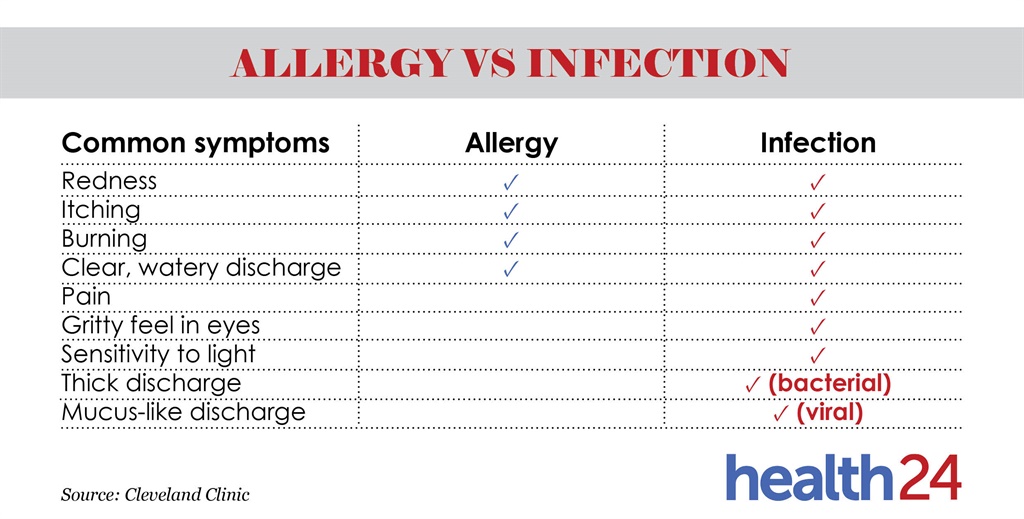Have you ever wondered why your eyes turn red during allergy season? The answer is actually quite simple.
The American College of Allergy, Asthma & Immunology explains that when an allergen (pollen, smoke, pollution, dust, dander) comes into contact with antibodies attached to mast cells in your eyes, the cells release histamine to counteract this reaction.
The histamine (and other substances) cause tiny blood vessels to leak, and the result is red, itchy and watery eyes.
Most allergens that can get into your eyes will cause this reaction. These include:
- Outdoor allergens (pollen)
- Indoor allergens (dander, dust mites, mould)
- Irritants (smoke, pollution, perfume)
If you are prone to allergies, it’s a good idea to be prepared.
"Pretreating allergies will lead to better control of symptoms, and maybe prevent symptoms from showing up," Dr Ahmad Sedaghat, an ear, nose and throat specialist at Harvard-affiliated Massachusetts Eye and Ear Infirmary, told Harvard Health Publishing. "The impact of allergies goes beyond discomfort. Your sleep is worse, you're more tired in the morning, and your quality of life suffers."
Managing eye allergies
A simple solution to managing allergies is to avoid allergens that may trigger a reaction. However, that is not always possible, so you may need to make some changes:
- Avoid touching your eyes. Rubbing them will just cause the allergen to release more chemicals, making the itch worse.
- Keep windows and doors closed when pollen levels are high; use an air conditioner to keep the temperature moderate. Make sure you keep the filters clean.
- Always wear glasses while you’re outside – this will help to keep any allergens, like pollen, out of your eyes.
- Use a dehumidifier to control the growth of mould. Keep bathrooms and kitchens clean and start scrubbing as soon as you see mould growing.
- Keep pets out of the bedroom and off the furniture. If this is difficult to do, then make sure you clean regularly. Wash your hands immediately after petting an animal. Change your clothes and wash them, too, to avoid spreading the allergens in your house.
Control your symptoms
If none of the above works, your next step is to control your symptoms using eye drops or antihistamines.
- Use eye drops or artificial tears to keep your eyes lubricated and wash away any allergens.
- Decongestant eye drops may help but avoid using the ones that treat red eyes for longer than a week – they can make your symptoms worse. Take an oral antihistamine but just remember they may dry your eyes out, which could exacerbate your symptoms.
- If over-the-counter medication does not work, speak to you doctor about prescription drugs, such as eye drops, allergy shots and nonsedating oral histamines.
Is it an allergy or infection?
If you’re unsure whether your allergies are playing up or if it’s an eye infection, compare the symptoms or speak to your doctor:

Image credit: iStock




 Publications
Publications
 Partners
Partners
















